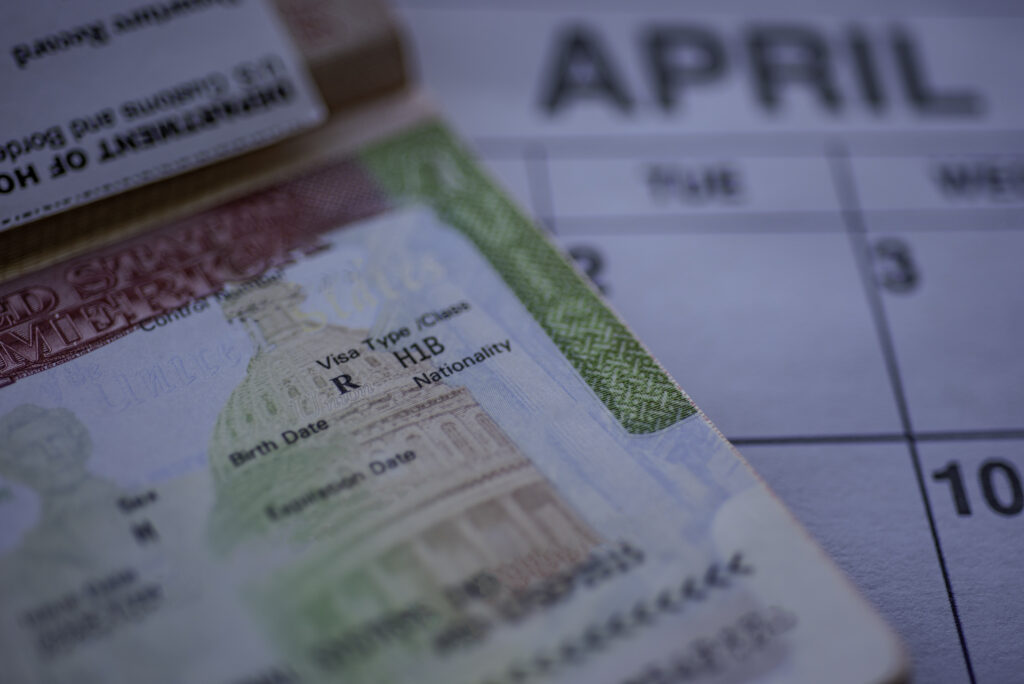

In today’s globalized world, hiring foreign workers in the manufacturing industry is an increasingly common practice. Drawing upon this diverse talent pool can offer a unique blend of skills, perspectives, and experiences that can enrich the workplace and boost productivity. While integrating foreign talent into your operations might seem daunting due to the complexities of visa processes and regulatory compliance, the long-term benefits are well worth the investment. These foreign workers can bring fresh insights, foster innovation, and promote a multicultural work environment that is conducive to growth.

F-1 visas are issued to foreign students who wish to pursue academic studies and language training programs in the United States. While primarily designed for students, F-1 visas can also be utilized by manufacturing companies seeking to hire foreign interns or trainees. Under the Curricular Practical Training (CPT) or Optional Practical Training (OPT) programs, students can gain permission to work in their field of study.
This provides manufacturing companies with access to a wide range of skilled and motivated individuals who bring fresh ideas and unique perspectives to the table. However, it’s crucial for employers to understand the terms and conditions associated with F-1 visas, particularly the limitations on employment duration and the requirements for maintaining visa status.

The H-1B visa is a non-immigrant visa that allows US companies to employ foreign nationals in specialty occupations that require theoretical or technical expertise. A foreign national hired under the H-1B visa must have at least a bachelor’s degree or its equivalent in a related field. This type of visa is particularly relevant for the manufacturing industry, which often requires professionals with specialized skills, such as engineers, programmers, and research scientists.
A foreign worker under the H-1B visa may be employed for up to six years, with an initial period of three years and the possibility of extension. However, the number of H-1B visas granted annually is subject to a cap, which currently stands at 65,000, with an extra 20,000 visas available to individuals who have earned a master’s degree or higher from a US institution. As such, while H-1B visas can be a valuable resource for manufacturing companies seeking specialized foreign talent, the competition for these visas is high, and the application process can be complex and time-consuming. Compliance with regulations regarding wages and working conditions is also crucial.
The TN visa is a special classification for citizens of Canada and Mexico, established under the United States-Mexico-Canada Agreement (USMCA). This visa allows professionals in certain fields, including but not limited to engineering, science, and business planning, to work in the U.S. for an American or foreign employer. For the manufacturing industry, this can be a valuable avenue for securing talent from our closest neighboring countries.
TN visas are issued for up to three years but can be renewed indefinitely. This provides a degree of flexibility for employers and employees alike. However, it is essential to understand that the professionals must have a prearranged full-time or part-time job with a U.S. employer to be eligible. Self-employment is not allowed under a TN visa. Likewise, compliance with all terms and conditions, including wage regulations and working conditions, remains a critical aspect of maintaining TN visa status.

L-1 visas offer an excellent avenue for multinationals to transfer employees from their foreign operations to their US-based offices. They are categorized into L-1A and L-1B visas. L-1A visas are specifically designed for managerial or executive-level employees, while L-1B visas cater to employees with specialized knowledge pertinent to the organization’s operations. Unlike the H-1B visa, the L-1 visa category does not have an annual cap, offering a significant advantage to manufacturing companies seeking to leverage foreign talent on a consistent basis.
The L-1 visa also provides an initial period of stay of up to three years, which can be extended to a maximum of seven years for L-1A visas and five years for L-1B visas. However, it is crucial for employers to understand that this visa necessitates a qualifying relationship between the foreign company and the US company. Therefore, careful documentation and preparation are key to ensuring a successful application process. Furthermore, in compliance with immigration laws, companies must also meet all requisite employment conditions and wage regulations.
E visas, which include E-1, E-2, and E-3 visas, offer another potential route for hiring foreign workers in the manufacturing industry. E-1 visas, also known as Treaty Trader visas, allow nationals of a treaty country to enter the U.S. to engage in international trade. E-2 visas, or Treaty Investor visas, permit foreign individuals or companies to enter and work in the U.S. based on a substantial investment they will be controlling while inside the United States. These categories may be particularly relevant for manufacturing businesses that have substantial trade with or investment from treaty countries.
The E-3 visa, on the other hand, is specifically for Australian nationals who wish to work in a specialty occupation in the U.S. This could be a great opportunity for manufacturing industries to tap into the skilled Australian workforce. The E-3 visa offers similar benefits to the H-1B visa but without the cap limitations. It initially allows for a two-year stay but can be renewed indefinitely in two-year increments. However, like most U.S. work visas, it requires a legitimate job offer from a U.S. employer and proof that the individual will be compensated at the same rate as a U.S. worker in a similar position. As always, careful compliance with all visa regulations is essential.

For manufacturing companies looking to retain foreign talent on a long-term basis, sponsoring foreign workers for Permanent Residence (PR), also known as a green card, is an effective approach. There are several pathways for this, but the most common for professionals is through employment-based preferences, specifically the First (EB-1), Second (EB-2), and Third (EB-3) preference categories.
The EB-1 category includes individuals with extraordinary ability, outstanding professors and researchers, and multinational managers or executives. The EB-2 category is intended for professionals with advanced degrees or individuals with extraordinary ability. The EB-3 category is for skilled workers, professionals, and other workers.
Sponsoring a foreign worker for PR involves a complex process that includes obtaining a certification from the Department of Labor, filing a petition with the U.S Citizenship and Immigration Services, and the foreign national applying for an immigrant visa at a U.S. consulate abroad or for adjustment of status if they are already in the U.S.
This process can be time-consuming and requires careful attention to immigration laws and regulations. However, it ultimately provides a pathway for foreign talent to become permanent U.S. residents, offering stability for both the employee and the employer. It’s important for employers to note that they must continue to comply with all employment laws and regulations, and they must provide wages and working conditions commensurate with those of U.S. workers.
Navigating the complexities of immigration laws can be daunting, but the Bashyam Global Immigration Law Group is here to assist. Our years of experience and unwavering commitment to our clients make us well-equipped to guide you through the immigration process. Here’s how we can help:
Comprehensive Consultation: We provide thorough consultations to understand your specific needs and circumstances. This allows us to develop a tailored strategy that aligns with your goals.
Expert Guidance: With our deep understanding of immigration law, we provide expert guidance on various visa categories. We help you understand which visa type suits you best, explain the application process, and reveal potential pitfalls and how to avoid them.
Application Assistance: We assist in the preparation and submission of visa applications. Our team of immigration lawyers ensures that your documents are correctly filled out and submitted within the required timeline.
Regulatory Compliance: Our team stays up-to-date with the ever-changing immigration laws and regulations. We guide our clients to ensure continuous compliance with all the necessary requirements.
Support with Documentation: We help our clients collect, organize, and submit the necessary documentation for their visa applications, which can be a laborious task without professional help.
Preparation for Visa Interviews: We prepare our clients for visa interviews to increase their chances of success. We provide insights into what interviewers are looking for and coach clients on how to respond to questions effectively.
Permanent Residence Sponsorship: For those seeking to sponsor foreign talent for Permanent Residence, we provide comprehensive support throughout the complex process. From obtaining a certification from the Department of Labor to filing petitions with U.S. Citizenship and Immigration Services, we guide you every step of the way.
Long-term Immigration Planning: We assist companies in long-term immigration planning, helping them to create a lasting strategy for securing and retaining foreign talent.
The Bashyam Global Immigration Law Group is committed to helping you simplify the immigration process and achieve your goals.

The path to securing and maintaining foreign talent can be a challenging journey. It requires a deep understanding of immigration laws, precise attention to detail, and comprehensive planning. That’s where we excel. With our years of experience and client-oriented approach, we are dedicated to walking alongside you every step of the way. If you are interested in exploring the options and strategies that best align with your specific needs, we encourage you to contact us for a consultation. We look forward to guiding you through your immigration journey and helping you achieve your goals.